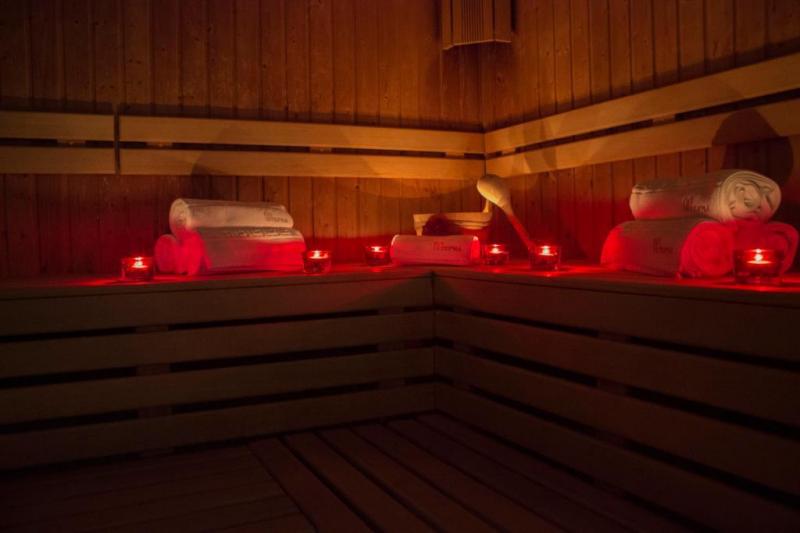Sauna is a small room or building designed as a place to experience dry or wet heat sessions, or an establishment with one or more of these facilities. The steam and high heat make the bathers perspire.
to continue....
Sauna use may temporarily relieve symptoms of the common cold. It increases the heat tolerance threshold and may improve performance in endurance sport. Sauna may help rheumatic pain (with cold shower) but not neuropathic pain, and has also shown usefulness for appetite loss and mild depression. It has also been recommended for reducing symptoms in chronic fatigue syndrome and fibromyalgia, and rheumatoid arthritis, and for anorexia nervosa, and been proposed for treatment of other conditions including glaucoma, Sjogren syndrome,and obstructive lung disease, and for recuperation after childbirth.
One study found sauna bathing may reduce the risk of Alzheimer's disease and other types of dementia. Many of the sauna therapeutic trials used a regular schedule of at least 5 days a week and often daily for one to three months, then several times a week for extended periods.
Saunas may not be safe in cases of unstable angina pectoris, a recent heart attack, and severe aortic stenosis. Additionally, there is risk of heat prostration or the even more serious hyperthermia. Children and older persons who have heart disease or seizure disorders or those who use alcohol or cocaine are especially vulnerable. Sauna use has been associated with loss of fertility in men, lasting up to two months. There is evidence that the heat has dramatic effects on spermatogenesis.
Prolonged stay in a sauna may lead to the loss of electrolytes from the body, as after vigorous exercise. The risk of dehydration leading to heat stroke may be reduced by regular sipping of water or isotonic drinks, but not alcohol, during the sauna. Sauna bathing and heavy drinking of alcoholic beverages, and also sauna bathing during alcohol withdrawal phase can undoubtedly create real health risks.


